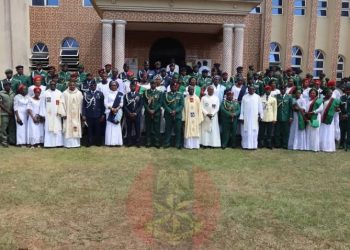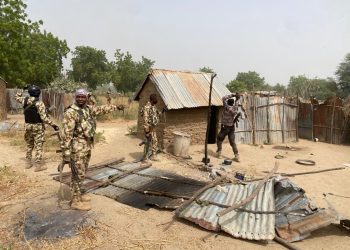The Civil Society Legislative Advocacy Centre (CISLAC) has joined other Nigerians in mourning the passing of former President Muhammadu Buhari, describing his legacy as one defined by early discipline, civic engagement, and critical lessons for future leadership in Nigeria.
In a condolence statement issued on Sunday, the Executive Director of CISLAC and Head of Transparency International Nigeria, Comrade Auwal Musa Rafsanjani, extended heartfelt sympathy over the death of the former president and prayed for the peaceful repose of his soul.
“May his soul rest in peace. Nigerians will particularly remember him for his early leadership as a military head of state, during which he launched the War Against Indiscipline (WAI),” Rafsanjani stated.
He recalled that the War Against Indiscipline initiative, introduced during Buhari’s military regime, had a lasting impact on the national psyche by promoting civic responsibility, punctuality, orderly conduct in public spaces, and respect for national symbols.
“During that time, people began to observe greater order, coming to work on time, queuing properly at public places, and displaying the national flag in offices. National symbols were respected, and a stronger sense of civic duty was instilled,” he said.
Rafsanjani acknowledged that Buhari’s military era was also marked by concerns over human rights violations, which became a subject of national and international debate. This, he noted, remained a critical area for reflection even as Buhari later returned as a democratically elected president.
Having contested for the presidency multiple times, Buhari was elected in 2015 with widespread public and international support, generating high expectations among Nigerians that his administration would address persistent national challenges such as insecurity, corruption, and unemployment.
“Expectations were high when he assumed office, and many believed he would drive major reforms,” Rafsanjani noted. “However, over time, especially during his second term, public confidence waned, with many Nigerians feeling that anticipated changes were not fully realized.”
While recognizing Buhari’s sincerity and initial popularity, the CISLAC Director pointed to internal political dynamics as a major factor that may have limited the effectiveness of his administration.
“He came into office with noble goals and enjoyed public trust in the beginning. However, governance is complex, and political dynamics—particularly the influence of certain figures within his administration—posed significant challenges,” he said.
Rafsanjani emphasized that the former president’s tenure offers a valuable lesson for current and future leaders, stressing that visionary leadership must be accompanied by competent execution, institutional transparency, and unwavering accountability.
He also acknowledged that Buhari helped shape national discourse around anti-corruption, civic discipline, and national security, adding that CISLAC and other civil society organizations engaged constructively with his administration on institutional reform and public accountability.
In closing, Rafsanjani urged Nigerian leaders to always prioritize national interest and strive for legacies that command both domestic and international respect.
















